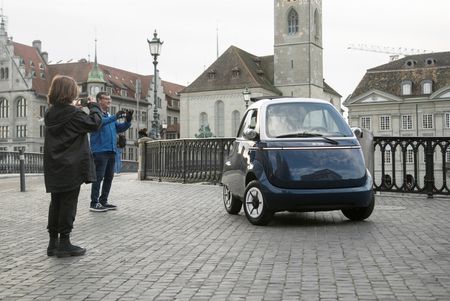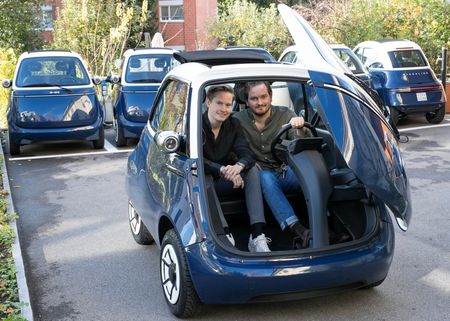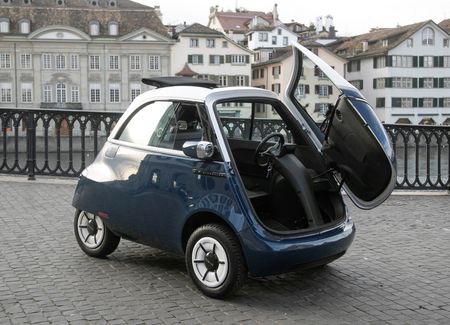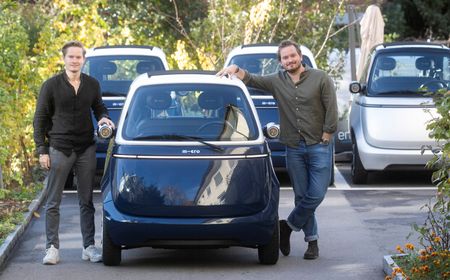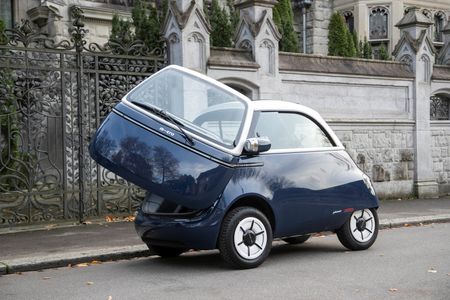By John Revill and Arnd Wiegmann
ZURICH (Reuters) -Two Swiss brothers are seeking to put their country back on the carmaking map by reviving a 1950s motoring classic with an electric twist.
Oliver and Merlin Ouboter have launched a new version of the micro car, modelled on BMW’s Isetta bubble car, this time with four wheels, not three.
The new Microlino replaces the old petrol engine with a 12.5 kilowatt electric engine giving it a range of up to 230 km (143 miles) and a top speed of 90 km per hour.
Its light weight – 496 kg – and small size – 2.5 meters long – reduce the vehicle’s environmental impact and makes it easier to park in tiny spaces, said Oliver Ouboter, chief operating officer at Microlino AG.
“The idea was to create an alternative to conventional cars. The Microlino does that much better than bicycles – it’s weather protected, you have space for cargo, you can have two people sitting next to each other,” Ouboter told Reuters.
“Because it’s smaller than a conventional car it consumes less material to make it, and it has a smaller battery which means it uses less electricity,” his brother Merlin added. “So the ecological footprint is about a third of a conventional electric car.”
More than 35,000 reservations have been received for the Microlino, which is being built in Italy and costs upwards of 15,000 Swiss francs ($16,195).
The Oubuters’ parents – whose company has sold 90 million kick scooters – have invested more than 10 million francs in the project, although the brothers declined to specify how much.
More known for chocolate, watches and banking, Switzerland did have a car industry in the early 20th century, with long forgotten brands such as Ajax, Fischer and Turicum.
High production costs and a tiny home market doomed many, although Switzerland does host some niche manufacturers.
“Ideas can be developed in Switzerland, the marketing is taking place here, but the mass production somewhere else. Microlino is the latest example of that,” said Daniel Geissmann at the Swiss Transport Museum in Lucerne.
“There is a market for such a car,” he said. “It’s striking and it’s fun.”
($1 = 0.9262 Swiss francs)
(Writing by John Revill, Editing by Louise Heavens)

